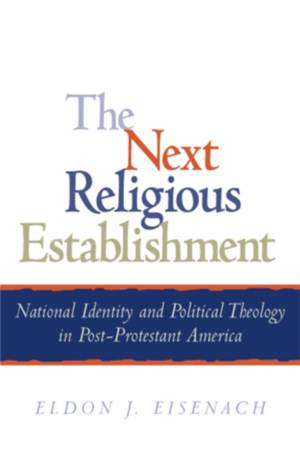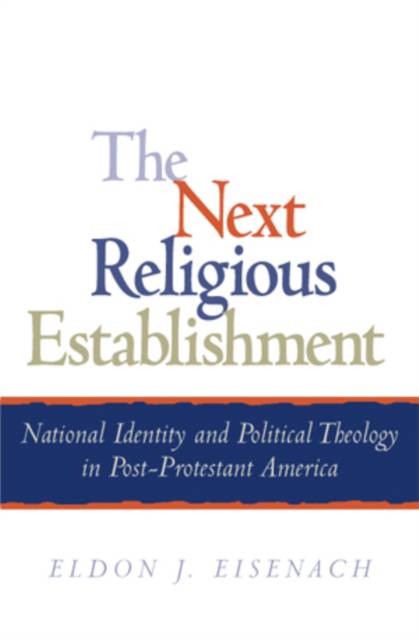
- Afhalen na 1 uur in een winkel met voorraad
- Gratis thuislevering in België vanaf € 30
- Ruim aanbod met 7 miljoen producten
- Afhalen na 1 uur in een winkel met voorraad
- Gratis thuislevering in België vanaf € 30
- Ruim aanbod met 7 miljoen producten
Zoeken
The Next Religious Establishment
National Identity and Political Theology in Post-Protestant America
Eldon J Eisenach
€ 134,45
+ 268 punten
Uitvoering
Omschrijving
America cannot survive without a common faith. History has taught us that our national identity and our political order require voluntary religious and civic organizations. Following the social, political, and cultural upheavals of the 1960s, Americans are now engaged in a struggle to determine the future of our nation's character and destiny. So argues prominent political theorist Eldon J. Eisenach in this brilliant and controversial new book.
Contentious debates over multiculturalism, church-state relations, and immigration illustrate America's current identity crisis. Creating a common vision for America is no easy task but Eisenach describes how the moral and spiritual foundations of a new, coherent, American identity and faith are already emerging. As in the past, the next religious establishment's primary expression will be a political and cultural order that mediates and integrates personal, ethnic, religious, and civic identities.
The Next Religious Establishment alerts readers to the changing landscape of America's identity and invites us to participate in its redefinition. This book will profoundly alter the way political theorists, intellectual historians, and theologians conceptualize America's past, present, and future.
Contentious debates over multiculturalism, church-state relations, and immigration illustrate America's current identity crisis. Creating a common vision for America is no easy task but Eisenach describes how the moral and spiritual foundations of a new, coherent, American identity and faith are already emerging. As in the past, the next religious establishment's primary expression will be a political and cultural order that mediates and integrates personal, ethnic, religious, and civic identities.
The Next Religious Establishment alerts readers to the changing landscape of America's identity and invites us to participate in its redefinition. This book will profoundly alter the way political theorists, intellectual historians, and theologians conceptualize America's past, present, and future.
Specificaties
Betrokkenen
- Auteur(s):
- Uitgeverij:
Inhoud
- Aantal bladzijden:
- 192
- Taal:
- Engels
- Reeks:
Eigenschappen
- Productcode (EAN):
- 9780847696185
- Verschijningsdatum:
- 5/07/2000
- Uitvoering:
- Hardcover
- Formaat:
- Genaaid
- Afmetingen:
- 154 mm x 235 mm
- Gewicht:
- 403 g

Alleen bij Standaard Boekhandel
+ 268 punten op je klantenkaart van Standaard Boekhandel
Beoordelingen
We publiceren alleen reviews die voldoen aan de voorwaarden voor reviews. Bekijk onze voorwaarden voor reviews.











